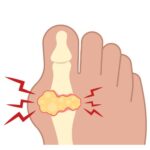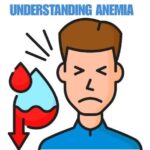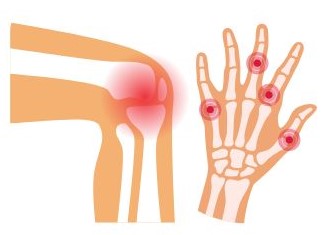The throat is a vital part of the respiratory and digestive systems, and various conditions can affect its function and health. This article explores common throat conditions, their symptoms, causes, diagnosis, treatment options, and preventive measures.
1. Pharyngitis (Sore Throat)
Overview:
Pharyngitis is the inflammation of the pharynx, which is the back part of the throat. It can be acute or chronic.
Symptoms:
- Pain or scratchy sensation in the throat
- Difficulty swallowing
- Swollen lymph nodes
- Fever
- Red or swollen tonsils
Causes:
- Viral infections (most common), such as the common cold or flu
- Bacterial infections (e.g., strep throat)
- Allergies or irritants (smoke, pollution)
Diagnosis:
A healthcare provider usually diagnoses pharyngitis through a physical examination, which may include a throat swab to check for bacterial infections.
Treatment:
- Viral Pharyngitis: Rest, hydration, over-the-counter pain relievers (e.g., acetaminophen).
- Bacterial Pharyngitis: Antibiotics if caused by bacteria (e.g., strep throat).
Prevention:
- Regular handwashing.
- Avoiding close contact with sick individuals.
2. Tonsillitis
Overview:
Tonsillitis is the inflammation of the tonsils, two lymph nodes located at the back of the throat.
Symptoms:
- Sore throat
- Swollen tonsils
- Difficulty swallowing
- Bad breath
- Fever
Causes:
- Viral infections (most common).
- Bacterial infections, particularly Group A Streptococcus.
Diagnosis:
Diagnosis involves a physical examination of the throat and may include throat culture or rapid antigen tests.
Treatment:
- Viral Tonsillitis: Symptomatic treatment with pain relievers and hydration.
- Bacterial Tonsillitis: Antibiotics and, in severe cases, tonsillectomy (surgical removal of the tonsils).
Prevention:
- Good hygiene practices, such as frequent handwashing.
3. Laryngitis
Overview:
Laryngitis is the inflammation of the larynx (voice box), often leading to hoarseness or loss of voice.
Symptoms:
- Hoarseness or weak voice
- Sore throat
- Dry cough
- Difficulty swallowing
Causes:
- Viral infections (e.g., cold viruses).
- Overuse of the voice (screaming or singing).
- Irritants like smoke or acid reflux.
Diagnosis:
A healthcare provider can often diagnose laryngitis through physical examination and review of symptoms.
Treatment:
- Resting the voice.
- Staying hydrated.
- Humidifying the air.
- Avoiding irritants.
Prevention:
- Avoiding excessive voice use.
- Quitting smoking and avoiding secondhand smoke.
4. Gastroesophageal Reflux Disease (GERD)
Overview:
GERD is a chronic condition where stomach acid flows back into the esophagus, which can irritate the throat.
Symptoms:
- Heartburn
- Regurgitation of food or sour liquid
- Sore throat
- Hoarseness
- Coughing
Causes:
- Weak lower esophageal sphincter.
- Obesity.
- Certain foods and beverages (spicy foods, caffeine).
Diagnosis:
Diagnosis may involve a review of symptoms, endoscopy, or pH monitoring of the esophagus.
Treatment:
- Lifestyle modifications (diet changes, weight loss).
- Antacids and acid-reducing medications (e.g., proton pump inhibitors).
- Surgery in severe cases.
Prevention:
- Avoiding trigger foods.
- Eating smaller, more frequent meals.
5. Throat Cancer
Overview:
Throat cancer can occur in the pharynx, larynx, or tonsils. It is relatively uncommon but can be serious.
Symptoms:
- Persistent sore throat
- Difficulty swallowing
- Unexplained weight loss
- A lump in the neck
- Changes in voice
Causes:
- Tobacco use (smoking or chewing).
- Heavy alcohol consumption.
- Human papillomavirus (HPV) infection.
Diagnosis:
Diagnosis typically involves imaging studies (like CT or MRI scans), biopsies, and physical examinations.
Treatment:
- Surgery (to remove the tumor).
- Radiation therapy.
- Chemotherapy.
Prevention:
- Avoiding tobacco and excessive alcohol.
- HPV vaccination.
6. Allergic Rhinitis
Overview:
Allergic rhinitis is an allergic reaction that causes inflammation in the nasal passages and throat.
Symptoms:
- Sneezing
- Nasal congestion
- Itchy throat or eyes
- Postnasal drip (leading to throat irritation)
Causes:
- Allergens like pollen, dust mites, and pet dander.
Diagnosis:
Diagnosis typically involves a review of symptoms and possibly allergy testing.
Treatment:
- Antihistamines.
- Nasal corticosteroids.
- Avoiding known allergens.
Prevention:
- Keeping living spaces clean and allergen-free.

Throat conditions can significantly impact quality of life, affecting communication, swallowing, and overall health. Recognizing symptoms early and seeking medical advice is crucial for effective management. Maintaining good hygiene, avoiding irritants, and adopting healthy lifestyle choices can help prevent many throat issues. If you experience persistent symptoms or discomfort, consulting a healthcare professional is essential for proper diagnosis and treatment.







